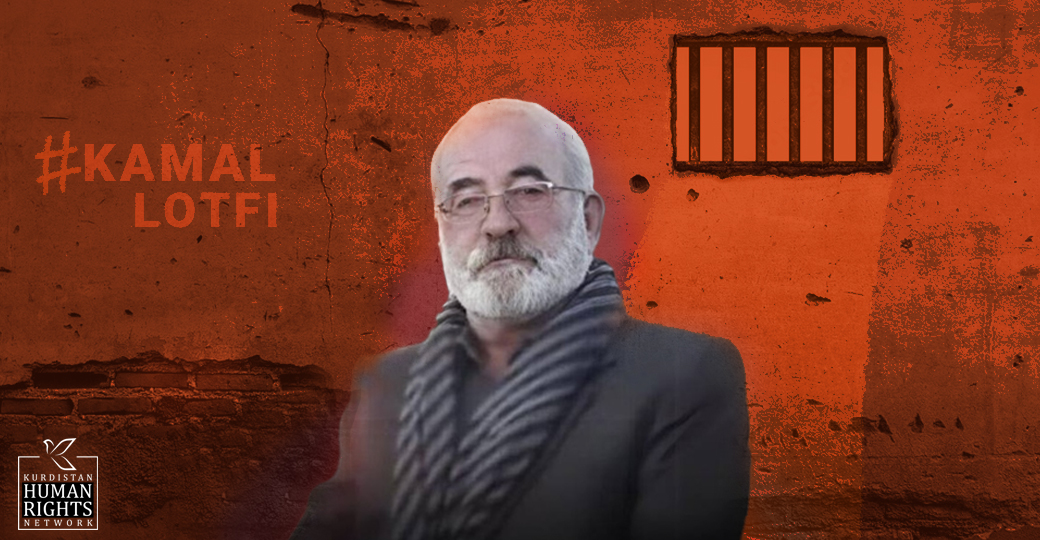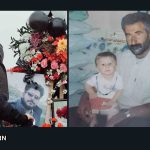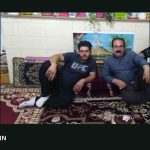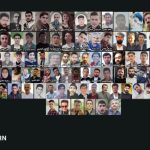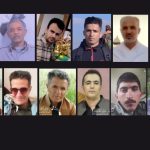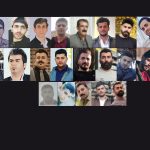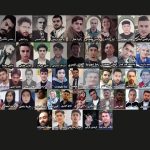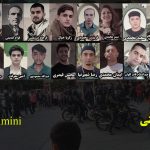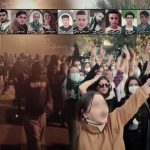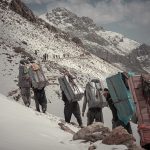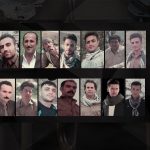Kamal Lotfi is the father of Reza Lotfi, who was shot dead by special unit forces on 19 September 2022 during the Women, Life, Freedom uprising in Dehgolan, Kurdistan Province.
After the 20-year-old’s death, his family was pressured and threatened by the Islamic Revolutionary Guard Corps (IRGC) to appear on television and blame opposition Kurdish parties for his death.
A few days after Reza Lotfi’s death, amid ongoing pressure, Kamal Lotfi released a video explicitly stating that his son was killed by the military forces of the Islamic Republic of Iran.
Arrest
Lotfi was first arrested on 16 April 2023 by security forces on a street in Dehgolan. He was initially taken to the Ministry of Intelligence in Sanandaj, Kurdistan Province, and after a few weeks was transferred to Kamyaran Prison in Kurdistan Province.
On 18 May 2023, protesting his continued detention in Kamyaran Prison, he went on a hunger strike for several weeks. Finally, after 87 days in custody, he was temporarily released on bail on 3 July 2023.
On 9 April 2024, he was summoned to the Public and Revolutionary Prosecutor’s Office in Qorveh, Kurdistan Province, and subsequently detained again and transferred to a security detention centre.
In May, after about a month of detention, he was moved from one of the security detention centres in Kurdistan Province to Kamyaran Prison.
Judicial Process
In November 2023, Lotfi was summoned to Branch 102 of Dehgolan Criminal Court Two to stand trial on charges of “propaganda against the state”.
In the winter of 2023, he was sentenced by the Islamic Revolutionary Court in Dehgolan to one year in prison for “propaganda against the state”, two years for “insulting the leader”, and two years for “insulting the founder of the Islamic Republic of Iran”.
According to the Law on Consolidation of Sentences, the most severe punishment, i.e., two years of imprisonment, will be enforceable.
Current Status
Lotfi is being held in Kamyaran Prison without access to a lawyer. He has also been deprived of his right to medication and medical services, despite suffering from a serious skin condition.
Notes
1. Women, Life, Freedom Uprising: Jina Amini (Mahsa Amini), a 21-year-old Kurdish woman from Saqqez, Kurdistan Province, was arrested on a street in Tehran on 13 September 2022 by the morality police because of the way she was dressed. Shortly after her arrest, she was transferred to Kasra Hospital in Tehran with head injuries and symptoms of brain death, and passed away three days later on 16 September 2022. The government’s killing of Jina sparked unprecedented anti-government protests, which began with a large turnout at her funeral at Aichi Cemetery in Saqqez and quickly spread to many cities across Iran. These widespread protests against the Islamic Republic of Iran, which lasted for several months, resulted in at least 527 protesters being killed and thousands injured and arrested. The protests are known for their central slogan of “Women, Life, Freedom” (Kurdish: Jin, Jiyan, Azadi).
2. Article 500 of the Islamic Penal Code: “Anyone who engages in propaganda activities against the Islamic Republic of Iran or in favour of groups and organisations opposing the state, in any manner, shall be sentenced to imprisonment for a period of three months to one year.”
3. Article 514 of the Islamic Penal Code (Deterrent Punishments and Penalties): “Anyone who insults the Founder of the Islamic Republic or the Leader in any manner shall be sentenced to imprisonment ranging from six months to two years.”
4. Article 134 of the Islamic Penal Code: “In the case of multiple crimes, only the most severe punishment mentioned in the verdict is enforceable, and the other punishments are not considered unless the most severe punishment is reduced or converted for a legal reason, such as the private plaintiff’s withdrawal of his complaint, the annulment of the legal punishment, or the passage of time, in which case the next most severe punishment will be implemented.”

